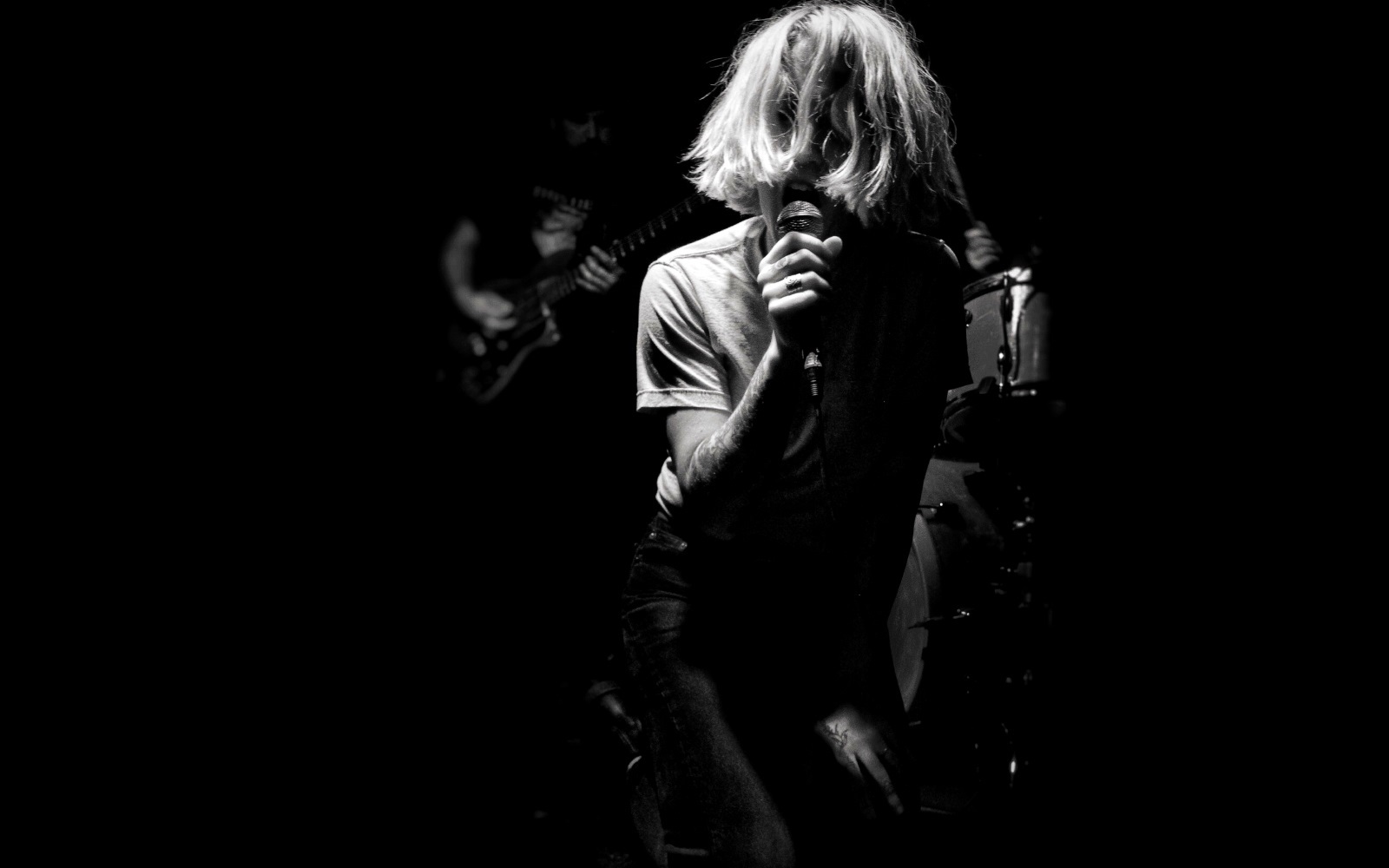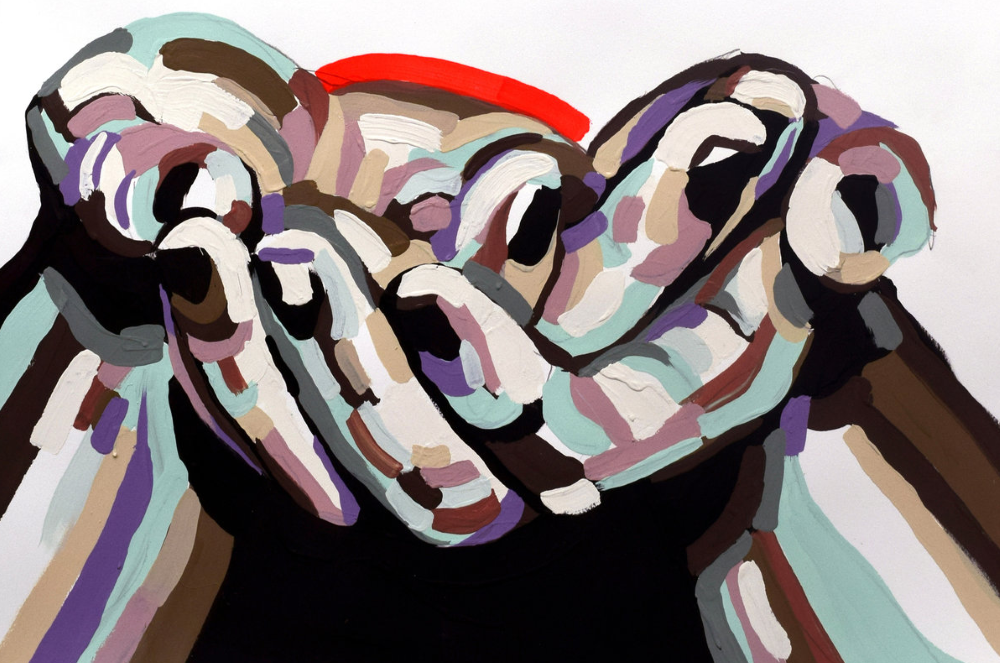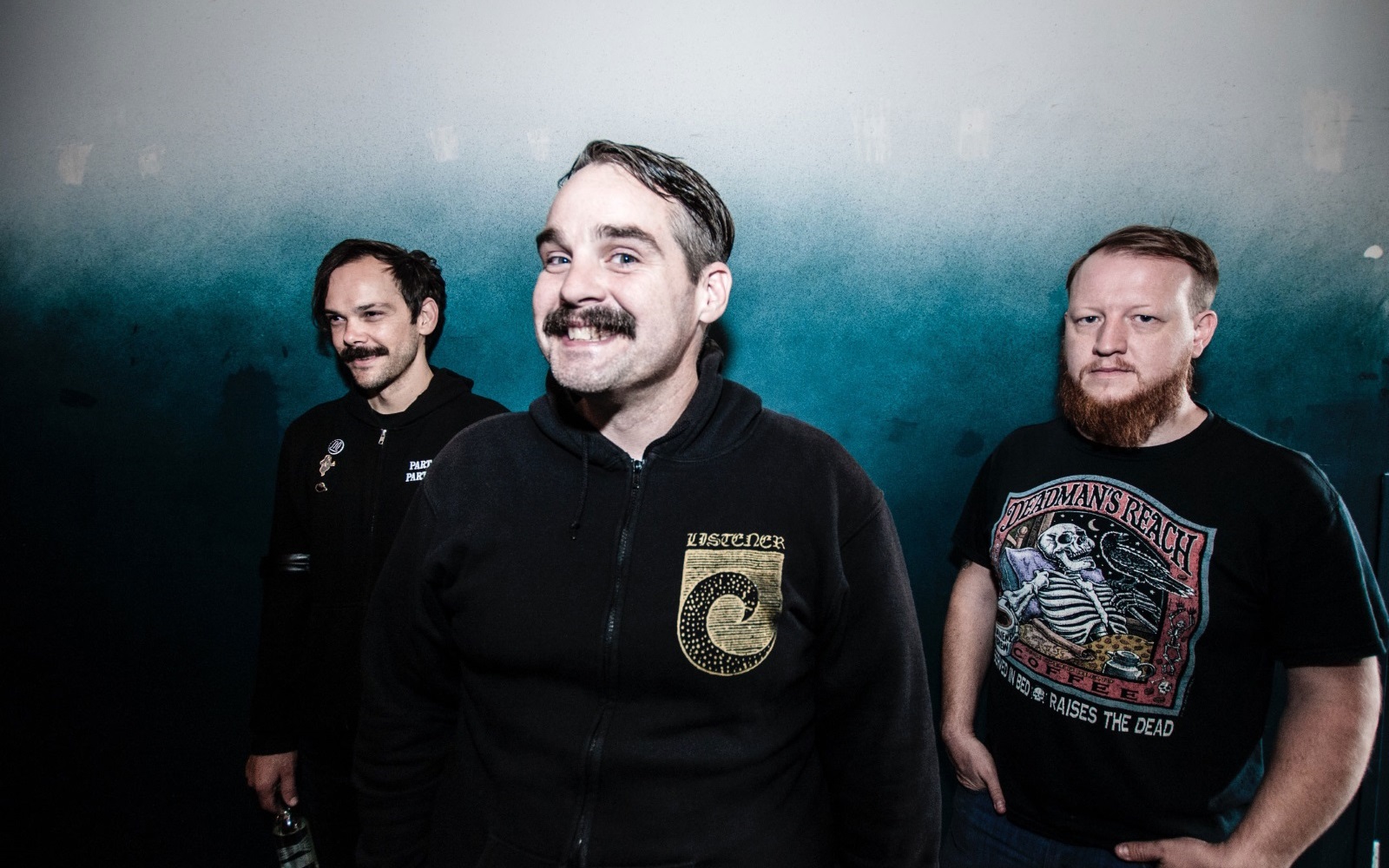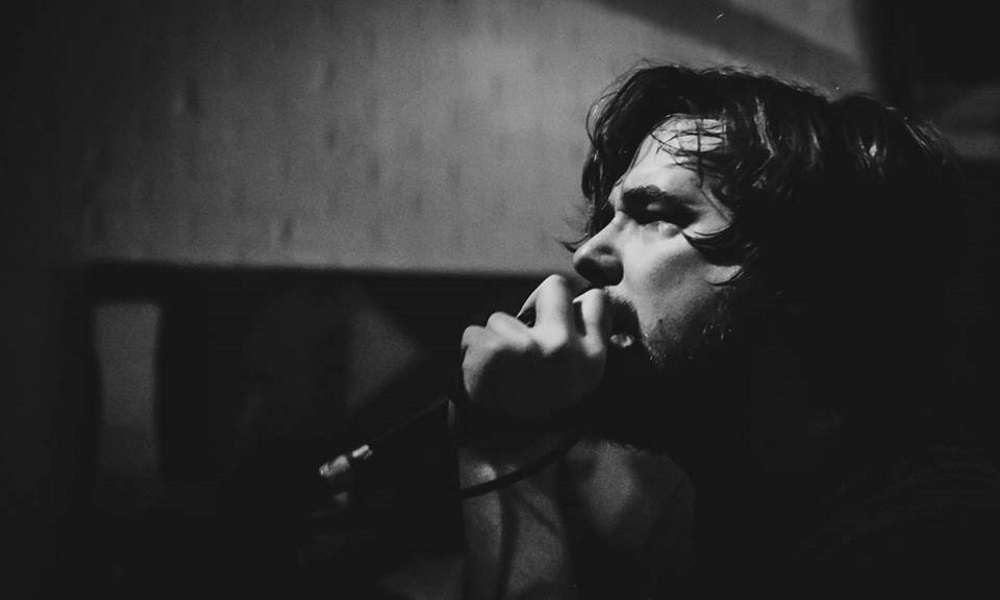December 2nd, 2017 marked one year since the Ghost Ship Fire in Oakland, one of the deadliest mass-casualty events in the history of California, and we’ve already seen a bunch of tributes and benefit events and records that were kind of difficult for to enjoy music has always been a key part of the mourning and rebuilding process. One such example is a new Loose Grip Records compilation album called Love Oakland, a great project dedicated to the 36 people that lost their lives on December 2nd, 2016, with all proceeds going to The Oakland Family Fund that uses funds to help those affected by the disaster, provides upgrades to the safety facilities of DIY spaces, and help artists maintain and keep their living spaces in the Oakland area.
We have temaed up with the Loose Grip’s Edwin Taylor, Hannah Lin Nelly of the band NAKED LIGHTS and founder of The Oakland Family Fund, Noah Charnow of psych rock’n’roll band SCRAPER, and Justin Pearson of THE LOCUST, PLANET B, Three One G Records, The Chain, DEAD CROSS, and more, to discusss the tragedy, conditions under which DIY spaces operate, the survival of independent venues, politics in arts, and more.
Love Oakland compilation can be grabbed via Three One G or Loose Grip’s Bandcamp / Photos by Becky DiGiglio, who we interviewed a couple of months back about her amazing photo book project with Justin Pearson / The following interview was conducted in December 2017.
Edwin Taylor of Loose Grip Records commented:
When I woke up to news about the fire a little over a year ago my heart broke. I had just moved from Oakland to Los Angeles a couple months prior.. Oakland means so much to me for so many different reasons. what happened at Ghost Ship was a tragedy. So many beautiful people lost their lives that night. I know the people of Oakland are still dealing with the fallout and will be for quite some time. I know the world can seem turbulent and at times doomed but I think Oakland is an example of a city full of people that truly care about each other no matter who they are or where they’re from. The energy and camaraderie I felt while living in Oakland has never been duplicated. It’s such a special place and I’m so grateful I was able to help, even in the smallest way possible, to putting this record together and getting it released.
Hey guys! Thanks so much for joining us here on IDIOTEQ. It has been a year since the Ghost Ship Fire tragedy in Oakland and it’s great to see you guys putting together such a great project, honoring the victims with a special tribute.
First off, please give us some background and details on your relationship with Oakland’s independent music and arts scene?
Nelly: I’m involved in a few different ways. First and foremost I’m a musician, and I play in several bands. I’m also a sound engineer, so I’m exposed to many different scenes and genres that I wouldn’t necessarily seek out on my own, and so I’ve learned to appreciate a lot of musical projects outside of my own musical tastes. And I have also lived in two warehouses, both of which hosted “underground” shows. I also book shows.
Noah: Mainly just form playing in Scraper. It’s also a pretty small community in the bay. Naturally I end up helping friends in other bands with putting on shows or doing artwork or whatever.
Justin: Being from San Diego, I have had so many years of traveling to and from Oakland to play shows with various bands and projects. It’s a “home away from home” for me, and over time, I have played some of my most memorable shows up there. Not to mention, that there is a large San Diego transplant population that has headed up there over time as well, so there is always Friends and family to spend time with when up there.
Did you get involved with the Ghost Ship venue? How do you remember it?
Nelly: I remember it being beautiful. Full of treasures. Every inch was a meticulous quilt of tchotchkes.
Noah: Sadly I never had the pleasure of visiting Ghost Ship. From what I’ve seen through photos it was clearly a beautiful place.
Justin: I’ve also never been to Ghost Ship. However, places like that, which have that sort of special energy are rare in this world. I’ve been lucky enough to experience similar spots and know the importance of what they hold for the arts community, so this whole situation resonates with me and the people who I collaborate with.
Personally, how do you feel about the official version of events in terms of who is held responsible and the legal finale of this case?
Nelly: This is a really hard question for me and I prefer not to answer, but I will say I think that the parties that should have been held most responsible are not.
Noah: The whole thing is a fucked situation.
Justin: There might be a bigger question to ask, which is, why do arts communities have to result in functioning in unsafe DIY spaces? Art funding in general here in the U.S. seems to tie into a capitalist structure. If there is not money to be made on a larger scale, it’s not “desirable”. For people who relate and were part of Ghost Ship, were often looked at as outcasts, or on the fringes or outskirts of society as a whole. When attempting to look at this question here, you can factor in all sorts of social politics and the struggles that a lot of artists face. Or perhaps what has created the subcultures that grow in hopes to real change. Not only is capitalism an obstacle that a lot of people in the arts community face, but also racist, sexism, homophobia, and so on. Even with a benefit compilation such as Love Oakland, it takes an underground DIY label to draw attention to the Ghost Ship tragedy, and the artists who took part in hopes to raise funds to help the families of the victims. One could point fingers at city planners, or gentrification, or even property owners that function as slum lords. But there is certainly a much larger, and much more complicated situation that could be addressed, which is how art and artists are viewed in general.
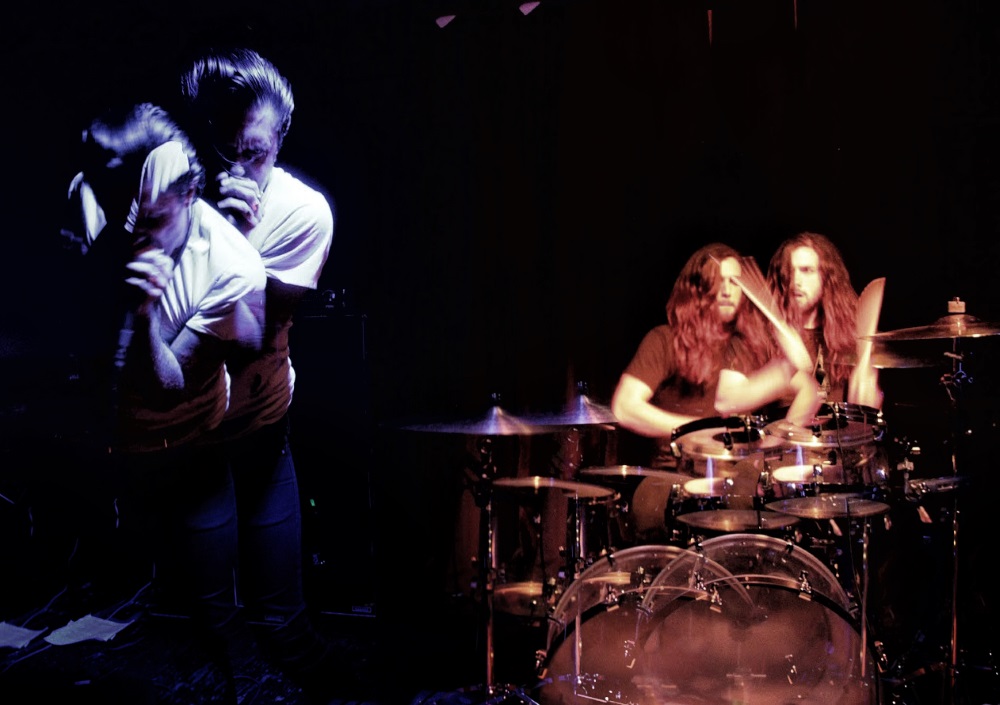
What’s the wider landscape of DIY art centres, squats, and independent venues in Oakland and California in general? Could you draw us a map of such spaces and share your thoughts on their state in general? How thriving is your local community when it comes to such places?
Nelly: Almost all of the DIY spaces that I have frequented since moving to Oakland are gone, and there were many more before I came. The rising popularity of the Bay Area has brought an onslaught of developers who have torn apart not only the DIY art and living spaces, but also folks’ homes, people who have lived here since birth. Families who have been here for generations are being forced to leave. And since the fire, the very community who suffered the loss of so many friends and artists are being punished by having their own spaces closed. Currently in Oakland there are two DIY spaces that I have contacts for. That number used to be much higher. And even those that I have contacts for (booking shows) have to stay under the radar, or even have to cancel scheduled events due to pressures from the city.
Noah: Slim pickens these days. The bay area is changing fast as cities do. As long as there are people make music and art then I think (or at least am hopeful) that these kids of spaces will continue to exist.
Justin: I think I might have touched upon some of this in my previous answer. But the same situation is here in Southern California. Even with venues like The Smell and the Che Cafe, which are both under attack, DIY spaces are suffering on so many levels. Perhaps when artists have no viable options, they compromise basic things such as safety, in hopes to be able to create. For a lot of areas in California, with the survival of DIY spaces, it does seem to come down to areas which are being gentrified, and again, the over all issues of capitalism.
DIY venues sit at the intersection of many difficult issues, with very similar problems all around the world, however there are many local governments and countries that support youth centres in their own way (i.e. Scandinavian countries), which obviously makes it a lot easier to build a solid independent cultural landscape. What major challenges do Californians face while creating DIY art spaces? Are there some specific constraints when it comes to both setting up and maintaining such venues?
Nelly: I can’t speak for all of California, but in Oakland, the city government and our mayor seem to have no real interest in helping our local artist communities, the exception being artists who fit into our First Friday scene and attract wealth to the city. The fire department and the city have both shown a total lack of desire to help keep our DIY spaces alive, and in fact seem to be on a crusade to shut them down so as to avoid future liability if something like The Ghost Ship Fire were to happen again. That in combination with the skyrocketing cost of living here have forced many people to not only abandon their art spaces, but leave the Bay Area entirely. As far as setting up and maintaining such venues, I’d say the number one constraint is cost; cost of keeping the building up to code, cost of purchasing a cabaret license, cost of rent, etc.. You mentioned Scandinavian countries that support youth centers, well it is my understanding that many of those countries’ governments actually financially support such centers. Several countries in Europe subsidize art spaces and even musicians themselves, putting money back into the pockets of artists. Here in Oakland, with a local government that is not on our side, we keep it underground, and that relationship can be dangerous.
Justin: It’s pretty similar in Southern California as to what Nelly said. Even in San Diego in specific, this is a tourist city, so there has always been a lack of assistance and effort put towards the arts, unless it’s in certain areas that are catering to tourism. City funding in San Diego generally goes to the more wealthy areas, for a very specific art community, one which will generate money. We have a huge refugee population here in San Diego, and are so close to the border of Mexico, but the city funding for arts usually tends to focus on and is applied to the wealthier, typically white communities. I do think it’s important to look at the situation as a whole. In San Diego, you have an “up and coming” community such as Barrio Logan, which was always “up” in my opinion. It’s a community that has always been rich with culture. I recently lived there but could not afford to stay living there due to gentrification. Over the last few years more and more galleries, DIY spaces, and art events were happening there, which drew more attention to the community. That attention brought in developers, which changed the business landscape, and the demographic of who can remain living there and who can still function there within the arts community of the city as a whole. Therefor I would say the biggest constraint is a financial constraint.
Why is it important to have such places? What do young people and local communities gain from that?
Nelly: There are endless answers to this, but the first thing that comes to my mind is that they provide safe spaces for all kinds of people to have platforms for their creativity, to be freaks, to push each other artistically. In a regular music venue, selling tickets at the door and drinks at the bar is of utmost importance to the venue. In DIY spaces, folks pour their time and energy into creating a venue purely for art to happen. It shifts the objective from making money to making art, and that makes all the difference for a really unique and strong art scene to thrive.
Noah: Art and culture.
Justin: I agree with both Nelly and Noah here. It’s these types of venues that are culturally relevant, and have a strong sense of community. It’s the building blocks of education for younger people, and leads towards progressive outcomes for the arts communities and beyond.
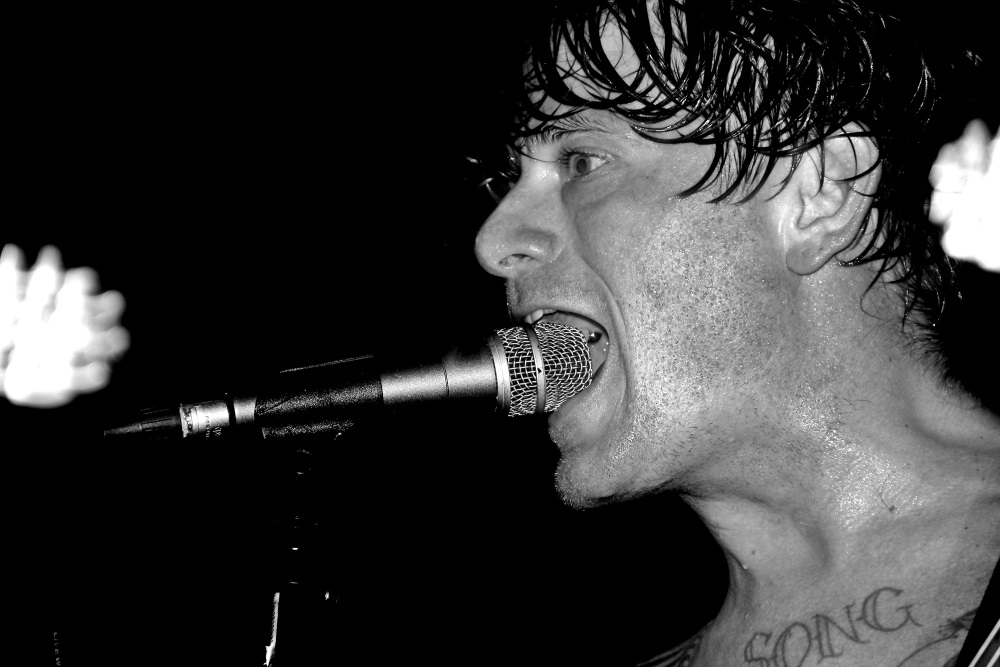
Ok, so back to Love Oakland compilation, how did you all come together for this collaboration?
Nelly: Ed Taylor contacted me about it, he organized the whole thing. And he got in touch with me through the Oakland Family Fund. After the fire happened I wanted to help folks who were directly affected by the loss, so I organized an event where folks could come to share stories, eat food, and just be together. We hosted it at an iconic Oakland DIY venue, where I lived for a short time, and we asked for donations. People were so generous, and we raised over $10,000 that night. Total strangers showed up with plates of food to share, restaurant owners donated food, bakeries donated bread, breweries donated beer, coffee roasters donated coffee, we built a beautiful altar, and people shared stories. We called it The Oakland Family Dinner. And after that people continued sending me money to pass along to those who needed help, and we started calling that the Oakland Family Fund. I collected money and handed it directly to folks who were being evicted, or who needed time off from work to cope, or needed therapy, or needed a UHaul and a dump run to clear out their warehouse to prepare for a fire inspection, or needed any help getting their space up to code, or really whatever anyone needed. Ed wanted to do something to help and decided to do a compilation to raise money for the Oakland Family Fund. My band, Naked Lights, is featured on it as well.
Noah: Big Ed is the man behind it all. As soon as he told me his idea for the comp we were in. Anything to help.
Justin: Ed asked Planet B to take part in the compilation. It was a no-brainer for us. Oakland as a whole is a destination point for music. And Ed being an ex-San Diegan, as well as a bunch of the people taking part in the compilation who are friends and family to us, it only made sense to take part.
Were you ever inspired by similar charity compilations or other benefit projects? How popular is this way of helping others and bulding a better environment in your area?
Nelly: Musicians often book benefit shows here. One thing I love about Oakland is how much I feel my community has my back, because I see my community helping each other so much. But I have never been involved with a benefit album like this before.
Noah: I suppose so, we’ve definitely played benefit shows before to help where help is needed.
Justin: A compilation such as Love Oakland is common for me. The fist compilation I was part of 27 years ago, the Give Me Back compilation, seems to fall right in line with this compilation and all the other benefit albums that have come along in between.
The change in the political climate over the last year has been perhaps quite terrifying for most of the Americans. In regards to your artistic agenda, have you used your band as a platform for political and social work? What’s the main intent behind your work?
Nelly: Being a musician is not something I always knew I could do. Even with a musical and very supportive family, I grew up with male music idols. It was ingrained in me that I would be substandard in the music world because of a lack of female role models. I knew I’d never be able to play guitar as well as the guys because I saw no girls playing like them. While music is still incredibly male dominated, I have overcome that boundary and submitted to my need to play music. In doing so, I have found communities of incredible female musicians. In my work as a sound engineer, as well, I exist in a male dominated world. I guess if anything my intent is to help women be more fearless, help tear down that boundary, a process that took me too long. The lyrical content of the music I write almost always, even if inadvertently, ends up describing the experience of being a woman or a young girl, and heavily criticizes the societal boundaries and expectations placed on us. The track that my band has on the Love Oakland compilation, a song called Hyde, is no exception.
Noah: We don’t really mix politics or anything into our music. We just don’t get into it as a band. We all got opinions and talk about it as much as anyone else, but it’s just not something we want to put in there.
Justin: To me, everything is political, and the way you live your life is a platform for how you see the world that you live in. Trying to address the main intent behind work for me is addressing the basic aspects of life. Sure, this is a band, or we make music, and that in itself might not directly change the world. But we are part of a network of people, which has a drive to make this planet a better place. Something that could be viewed as simple as this compilation, goes well beyond trying to raise money for a cause, but sets a president for others to join in, and hopefully push for even more change.
Ok, so lastly, what can we expect from you guys in the coming year? Are you currently working on something worth mentioning?
Nelly: As far as the Oakland Family Fund, it just acts as a funnel to distribute financial help to folks who need it, and I have no major plans but will continue distributing whatever comes my way. I want to mention that there are some people in Oakland doing incredible work around alternative living and art spaces. The Oakland Warehouse Coalition was started by Jonah Strauss, and he has worked tirelessly since the fire happened to help keep these spaces alive, and even to create legislation that would open more low income living spaces. OWC’s goal is to make it possible to get residential permits for certain unconventional, nonresidential units, which would open up a whole lot of much needed housing. Safer DIY Spaces is another organization that is doing important work. They are a group of code-savvy professionals who do walk throughs for spaces who want to bring their buildings up to code. They also advocate for these spaces to the Building Department. These organizations are hugely important to Oakland right now.
Noah: Cookin up new songs. Do another record, hopefully go on tour and keep doing what we do. Cheers!
Justin: Let’s see what else the current administration can shit on. And with that, let’s see what sort of momentum we can get to change things, fight back, and make for a lasting change in how we all treat each other. Because when the environment is destroyed, when art is not an option, and ultimately when people are oppressed, those who profited will only have money and nothing else. As for the coming year, I’m sure everyone involved involved in this compilation will come up with impressive, and progressive elements to share with the world. Planet B has a full length coming out. I can only hope it’s a seed for something much larger.



